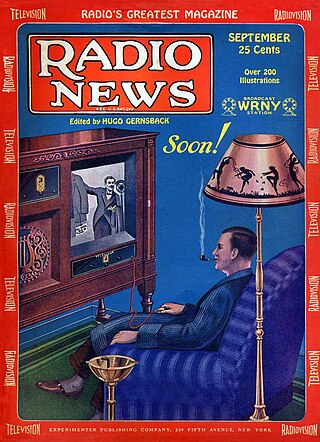Wikipedia does not currently have an article on "cash grab", but our sister project Wiktionary does: You can also:
|  |
Wikipedia does not currently have an article on "cash grab", but our sister project Wiktionary does: You can also:
|  |

Advertising is the practice and techniques employed to bring attention to a product or service. Advertising aims to put a product or service in the spotlight in hopes of drawing it attention from consumers. It is typically used to promote a specific good or service, but there are wide range of uses, the most common being the commercial advertisement.

A television advertisement is a span of television programming produced and paid for by an organization. It conveys a message promoting, and aiming to market, a product, service or idea. Advertisers and marketers may refer to television commercials as TVCs.

Sex appeal is often used in advertising to help sell a particular product or service. According to research, sexually appealing content, such as imagery, used for marketing does not need to pertain to the product or service in question. Rather, such content is utilized as an attempt to shape or shift brand image held by the consumer. As more companies have adopted the ad strategy of "sex sells", the prevalence of sexual campaigns has led to controversy. Consumers in society have voiced concern over the techniques and content used for titillating audiences, often stemming from the fact that such ads challenge conventional morals and cultural standards.
Viral marketing or viral advertising is a business strategy that uses existing social networks to promote a product mainly on various social media platforms. Its name refers to how consumers spread information about a product with other people, much in the same way that a virus spreads from one person to another. It can be delivered by word of mouth, or enhanced by the network effects of the Internet and mobile networks.
Advertising in video games is the integration of advertising into video games to promote products, organizations, or viewpoints.
Pop-up ads or pop-ups are forms of online advertising on the World Wide Web. A pop-up is a graphical user interface (GUI) display area, usually a small window, that suddenly appears in the foreground of the visual interface. The pop-up window containing an advertisement is usually generated by JavaScript that uses cross-site scripting (XSS), sometimes with a secondary payload that uses Adobe Flash. They can also be generated by other vulnerabilities/security holes in browser security.

Classified advertising is a form of advertising, particularly common in newspapers, online and other periodicals, which may be sold or distributed free of charge. Classified advertisements are much cheaper than larger display advertisements used by businesses, although display advertising is more widespread. They were also commonly called "want" ads, starting in 1763, and are sometimes called small ads in Britain.
Google AdSense is a program run by Google through which website publishers in the Google Network of content sites serve text, images, video, or interactive media advertisements that are targeted to the site content and audience. These advertisements are administered, sorted, and maintained by Google. They can generate revenue on either a per-click or per-impression basis. Google beta-tested a cost-per-action service, but discontinued it in October 2008 in favor of a DoubleClick offering. In Q1 2014, Google earned US$3.4 billion, or 22% of total revenue, through Google AdSense. AdSense is a participant in the AdChoices program, so AdSense ads typically include the triangle-shaped AdChoices icon. This program also operates on HTTP cookies. In 2021, over 38.3 million websites use AdSense.

A personal advertisement, sometimes called a contact ad, is a form of classified advertising in which a person seeks to find another person for friendship, romance, marriage, or sexual activity. In British English, it is commonly known as an advert in a lonely hearts column. In India, it is a dating ad or matrimonial ad.

Banner blindness is a phenomenon in web usability where visitors to a website consciously or unconsciously ignore banner-like information. A broader term covering all forms of advertising is ad blindness, and the mass of banners that people ignore is called banner noise.

Pogo.com is a free online gaming website that offers over 50 casual games from brands like Hasbro and PopCap Games. It offers a variety of card and board games to puzzle, sports and word games. It is owned by Electronic Arts and is based in Redwood Shores, California.
Direct response television (DRTV) is any television advertising that asks consumers to respond directly to the company — usually either by calling a toll-free telephone number, sending an SMS message, or by visiting a web site. This is a form of direct response marketing.
Click-through rate (CTR) is the ratio of users who click on a specific link to the number of total users who view a page, email, or advertisement. It is commonly used to measure the success of an online advertising campaign for a particular website as well as the effectiveness of email campaigns.

In politics, campaign advertising is the use of an advertising campaign through the media to influence a political debate, and ultimately, voters. These ads are designed by political consultants and political campaign staff. Many countries restrict the use of broadcast media to broadcast political messaging. In the European Union, many countries do not permit paid-for TV or radio advertising for fear that wealthy groups will gain control of airtime, making fair play impossible and distorting the political debate in the process.
In-game advertising (IGA) is advertising in electronic games. IGA differs from advergames, which refers to games specifically made to advertise a product. The IGA industry is large and growing.

Webkinz is a stuffed animal franchise by the Canadian toy company Ganz, consisting of stuffed animals that have online counterparts in the games "Webkinz Classic" and "Webkinz Next". It was originally released by Ganz on April 29, 2005.

Digital marketing is the component of marketing that uses the Internet and online based digital technologies such as desktop computers, mobile phones and other digital media and platforms to promote products and services. Its development during the 1990s and 2000s changed the way brands and businesses use technology for marketing. As digital platforms became increasingly incorporated into marketing plans and everyday life, and as people increasingly use digital devices instead of visiting physical shops, digital marketing campaigns have become prevalent, employing combinations of search engine optimization (SEO), search engine marketing (SEM), content marketing, influencer marketing, content automation, campaign marketing, data-driven marketing, e-commerce marketing, social media marketing, social media optimization, e-mail direct marketing, display advertising, e–books, and optical disks and games have become commonplace. Digital marketing extends to non-Internet channels that provide digital media, such as television, mobile phones, callback, and on-hold mobile ring tones. The extension to non-Internet channels differentiates digital marketing from online advertising.
Website monetization is the process of converting existing traffic being sent to a particular website into revenue. The most popular ways of monetizing a website are by implementing pay per click (PPC) and cost per impression (CPI/CPM) advertising. Various ad networks facilitate a webmaster in placing advertisements on pages of the website to benefit from the traffic the site is experiencing.
Pay per play (PPP), also known as cash per play (CPP), is an online advertising method that plays an audio advertisement on websites. The term "pay per play" comes from advertisers paying for each audio ad played. Also, the web page playing the audio ad is normally paid for each ad they serve. Ads are typically automatically played when a visitor loads a web page. Most commonly initiated via JavaScript, audio ads normally cannot be stopped once they start. Audio ads vary in length, and a website visitor will usually hear only one advertisement per visit to any specific web page.
Social network advertising, also social media targeting, is a group of terms that are used to describe forms of online advertising/digital marketing that focus on social networking services. One of the major benefits of this type of advertising is that advertisers can take advantage of the users' demographic information and target their ads appropriately.